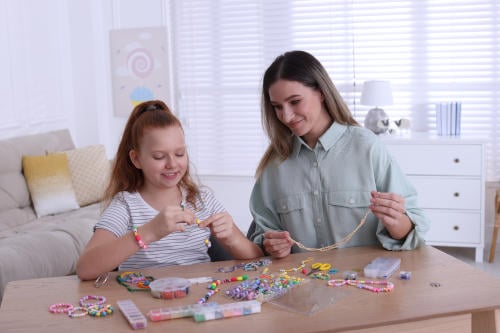The pre-teen years, when a young person begins the transition from childhood to adolescence, are a difficult time for most children. This period coincides with many life changes such as the move from primary to secondary school along with an increase in hormones as children move towards puberty.
For youngsters with a neurodiversity, the ‘tween’ years can be even more challenging says Sarah Boon, author of, ‘Young, Autistic and ADHD – Moving into Adulthood When You’re Multiply Neurodivergent’. She was herself diagnosed with both conditions in her twenties and says that she wrote this book to help other young people facing similar issues.
School is Often Difficult Without a Formal Diagnosis

“I was assessed for autism as a child but misdiagnosed as having speech problems because I did a lot of masking,” she recalls. “Secondary school was a real struggle for me. It was a large, busy, mainstream environment and I had difficulties with friendships and experienced some bullying. I also found it hard to engage in lessons.”
“I very much felt that there was something ‘wrong’ with me. A lot of what’s in the book is what I wish my younger self had known. Looking back, if I had known these things, my life might have been easier.”
Puberty Can Bring Sensory Challenges

For young females, Sarah points out, the pre-teen years often bring the onset on menstruation which can be tricky for those with sensory issues. “Finding the right sanitary products can be a process of trial and error and it can take people a while to get used to the changes in their bodies.”
“On top of that, relationships change a lot at this time. Girls especially can become more ‘clique-y’ and there are often more expectations to be ‘cool’. However, what’s considered cool generally may not make sense to neurodiverse youngsters so they have to make more effort to mask and ‘fit in’.”
Important to be Accepted as You Are

One factor that helped her through the tween years, Sarah says, was having people in her life that she didn’t need to mask around. “I would advise families to offer the same for their neurodivergent children,” she continues. “Just allow them to be themselves. Let them have uninterrupted alone time if that’s what they need. If they need to stim to regulate themselves, just accept it.”
“It’s also important to offer a positive understanding of autism and ADHD. Often, the diagnosis focuses on the negative aspects of these conditions but you need to talk about strengths, too, to build the young person’s self-esteem.”
Because it’s common for autistic people to find it difficult to talk about how they’re feeling, Sarah suggests parents help kids find alternatives to using words, such as music or art. You can even, she ventures, try using the child’s special interest – such as Lego or trains – to encourage them to express their emotions.
Greater Academic Pressure at Secondary School

On top of the increased social pressures of the pre-teen period, secondary school often marks the start of higher academic expectations plus more homework. Sarah warns that neurodiverse youngsters are especially vulnerable to burn-out during these years.
“Even doing normal, day-to-day things can become too much,” she points out. “Children can get burn-out where they shut down or withdraw. Families need to allow plenty of alone time to recharge. If they push their child too hard, they may make it worse.”
Sarah has her own website – autisticallysarah.com – where she shares her experiences of being neurodiverse. She would tell her younger self, she writes, that life will definitely get better after school and that she should remember that being different from other kids doesn’t mean she is less valuable.
‘I know you want to appear as normal as possible, and you will start to go down this path,’ she reflects. ‘However, seeking social acceptance in this way will destroy you. In fact, you shouldn’t be seeking social acceptance as a way to get by in life. If you follow the herd, the only thing I can guarantee for you is unhappiness and debilitating mental health problems. You will find happiness but not in normality.’




